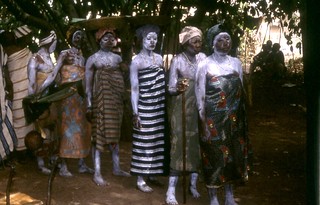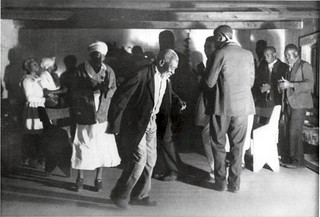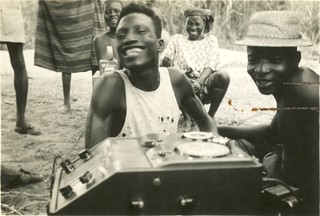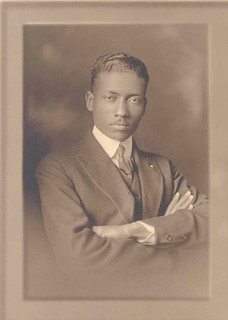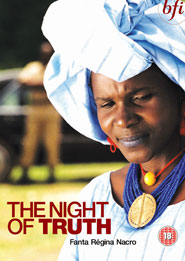Contests
Each year, Boston Review runs competitions in poetry and fiction. We also partner with the Unterberg Poetry Center/92nd Street Y to publish the winner of the annual “Discovery”/Boston Review poetry contest.
We strongly encourage online submissions for our poetry and short story contests (please note: the “Discovery” / Boston Review contest cannot be entered electronically), with payment via credit card. Contestants also may submit entries via postal mail but will not receive acknowledgement of successful submission. Email submissions are not accepted. Please do not contact us to ask whether you have won a contest. All contest entry payments are non-refundable and previously published work may not be submitted to any contest. All winners are announced publicly and informed prior to that announcement. Complete instructions for submission to all contests follow.
Aura Estrada Short Story Contest (Deadline: October 1, 2012)
The Boston Review Essay Contest (Deadline: December 1, 2012)
“Discovery”/Boston Review 2013 Poetry Contest, with the Unterberg Poetry Center/92nd Street Y (Deadline: TBA, January 2013 )
Sixteenth Annual Poetry Contest (Deadline: June 1, 2013)
Aura Estrada Short Story Contest
Deadline: October 1, 2012
Judge: Nathan Englander
Prize: $1,500
Complete guidelines:
The winning author will receive $1,500 and have his or her work published in Boston Review, the summer of 2013. First runner-up will be published in a following issue, and second runner-up will be published at the Boston Review Web site. Stories should not exceed 5,000 words and must be previously unpublished. Mailed manuscripts should be double-spaced and submitted with a cover note listing the author’s name, address, and phone number. No cover note is necessary for online submission. Names should not appear on the stories themselves. Any author writing in English is eligible, unless he or she is a current student, former student, relative, or close friend of the judge. Simultaneous submissions are not permitted, submissions will not be returned, and submissions may not be modified after entry. A non-refundable $20 entry fee, payable to Boston Review in the form of a check or money order or by credit card, must accompany each story entered. All submitters receive a complementary half-year subscription (3 issues) to Boston Review. Submissions must be postmarked no later than October 1, 2012. The winner will be announced in May 2013, on the Boston Review Web site.
Please enter online using our contest entry manager. This requires payment using a credit card.
Or mail submissions to:
Short Story Contest, Boston Review
PO Box 425786
Cambridge, MA 02142
Read winning stories from past years:
Alexandra Thom’s The Piano (2012)
Kalpana Narayanan’s Aviator on the Prowl (2011)
Adam Sturtevant’s How Do I explain? (2010)
Jessica Treglia’s Canceled (2009)
Patricia Engel’s Desaliento (2008)
Padma Viswanathan’s Transitory Cities (2007)
Tiphanie Yanique’s How to Escape from a Leper Colony (2006)
Lisa Chipongian’s Intramuros (2005)
D.S. Sulaitis’s If It’s Anywhere, It’s Behind Us (2004)
Gale Renee Walden’s Men I Don’t Talk to Anymore (2003)
Manini Nayar’s Home Fires (2002)
Kate Small’s One Night a Year (2001)
Girija Tropp’s The Pretty Ones Have Their Uses (2001)
Pauls Toutonghi’s Regeneration (2000)
Jacob M. Appel’s Shell Game with Organs (1999)
Kris Saknussemm’s Unpracticed Fingers Bungle Sadly Over Tiny Feathered Bodies (1998)
Kiki Delancey’s Jules Jr Michael Jules Jr (1997)
Mary Ann Jannazo’s No Runs, No Hits, No One Left on Base (1996)
Tom Paine’s The Milkman & I (1995)
Michael Dorris’s Layaway (1994)
For more fiction in Boston Review, click here.
The 2012 Boston Review Essay Contest
Deadline: December 1, 2012
Judge: Glenn Loury
Prize: $1,500 plus publication
With all the derision cast upon flip-floppers and etch-a-sketches, it is easy to forget that changing one's mind can be a noble and decent act. Sometimes a conversion is unavoidable. It can come fast or slow, deliberately or unexpectedly. There is no formula, and that's why the story of a changed mind can be a great one.
Boston Review wants you to tell us how you came to see things differently. We are looking for personal essays of up to 3,000 words that describe experiences or encounters that forced you to recognize dissonances in your worldviews, struggle with those dissonances, and ultimately affirm new moral, intellectual, spiritual, or political commitments. Essays will be judged on the strength of the writing and critical analysis.
Complete guidelines:
The winning author will receive $1,500 and have his or her work published in Boston Review, March 2013. Essays should not exceed 3,000 words. Mailed manuscripts should be double-spaced and submitted with a cover note listing the author's name, address, and phone number. No cover note is necessary for online submission. Names should not appear on the essays themselves. Any author writing in English is eligible, unless he or she is a current student, former student, relative, or close friend of the judge. Simultaneous submissions are not permitted, submissions will not be returned, and submissions may not be modified after entry. A non-refundable $20 entry fee, payable to Boston Review in the form of a check or money order or by credit card, must accompany each story entered. All submitters receive a complementary six-month subscription (3 issues) to Boston Review. Submissions must be postmarked no later than December 1, 2012. The winner will be announced in March 2013, on the Boston Review Web site.
Please enter online using our contest entry manager. This requires payment using a credit card.
Or mail submissions to:
Short Story Contest, Boston Review
PO Box 425786
Cambridge, MA 02142
“Discovery” / Boston Review 2013 Poetry Contest
Deadline: TBA, January 2013
Judges: TBA
Four Prizes: $500
Note: Submissions will be accepted to the 92nd Street Y only. Questions should be directed to the 92nd Street Y (212-415-5759).
Now in its fifth decade, the “Discovery” Poetry Contest, formerly “Discovery” / The Nation, is designed to attract large audiences to poets who have not yet published a book. For the fifth year, the 92nd Street Y Unterberg Poetry Center is proud to partner with Boston Review. Each of four winners is awarded a reading at the Poetry Center, publication in the May/June 2013 issue of Boston Review, and $500.
Timothy Donnelly, poetry editor at Boston Review, coordinates the contest, and three leading poets are invited to judge. Many winners of this contest have gone on to distinguished careers as poets, among them Marilyn Hacker, Katha Pollitt, Mary Jo Salter, and Mark Strand.
Read winning poems from 2012, 2011, 2010, 2009, and 2008.
Complete guidelines:
1. The contest is open to poets who have not published a book of poems (self-published chapbooks do not count as published books). Those who have a book contract at the time of submission or who are subsequently awarded a book contract are not eligible for the contest if their book is scheduled for publication before fall 2013. Individual poems that have been or will be published in periodicals or anthologies may be submitted; however, at least two of the submitted poems must be unpublished and under two pages in length.
2. Submit four identical sets of a typed ten-page manuscript. Each set is to contain the same ten pages in the same order. Include no more than one poem per page. NO personal identification should appear on any of the poems; no copyright attributions for previously published poems should appear on the poems.
3. Photocopied manuscripts are acceptable. However, in the case of previously published poems, do not send photocopied pages of the periodical or book in which the poem(s) originally appeared.
4. Please staple each manuscript; do not use paper clips.
5. Enclose ONE cover letter including your name, address and day and evening telephone numbers, as well as a list of the submitted poems in the order in which they appear, with copyright attributions for published poems. Do not attach this cover letter to the manuscripts.
6. An entry fee of US $10.00 must accompany the submission. Please make checks (drawn on U.S. banks only) or money orders (in U.S. currency only) payable to the 92nd Street Y, and attach them to your cover letter. DO NOT SEND CASH.
7. All poems must be original and in English (no translations).
8. No contestant may submit more than one entry. No corrections can be accepted after receipt of the contest submission.
9. Entries must be RECEIVED by DATE TBA, January 2013.. Please note this is not a postmark deadline. If you wish to receive confirmation of receipt of your manuscript, please enclose a stamped, self-addressed postcard (not envelope) and allow several weeks for its return. Due to the large number of submission received, manuscripts cannot be returned. Winners will be contacted by telephone in early March 2013; all contest entrants will be mailed the names of the winners and of the judges shortly thereafter.
10. No phone queries can be taken, either to inquire about contest deadlines, the status of your entry, or to request the names of winners. If you wish to hear a recording of the guidelines, or to receive another set of these guidelines in the mail, call 212-415-5759.
Mail submissions to:
“Discovery”/ Boston Review 2013 Poetry Contest
Unterberg Poetry Center
92nd Street Y
1395 Lexington Avenue
New York, NY 10128
Sixteenth Annual Poetry Contest
Deadline: June 1, 2013
Judge: TBA
First Prize: $1,500
Complete guidelines:
The winning poet will receive $1,500 and have his or her work published in the November/December 2012 issue of Boston Review. Submit up to five unpublished poems, no more than 10 pages total. Any poet writing in English is eligible, unless he or she is a current student, former student, relative, or close friend of the judge. Mailed manuscripts must be submitted in duplicate, with a cover note listing the author’s name, address, email, and phone number. No cover note is necessary for online submissions. Names should not be on the poems themselves. Simultaneous submissions are not permitted, submissions will not be returned, and submissions may not be modified after entry. A non-refundable $20 entry fee, payable to Boston Review in the form of a check or money order or by credit card, must accompany all submissions. All submitters receive a complementary half-year subscription (3 issues) to Boston Review. Mailed submissions must be postmarked no later than June 1, 2012.
The winner will be announced in November 2013 on the Boston Review Web site. All poems submitted to the contest will be considered for publication in Boston Review.
Please enter online using our contest entry manager. This requires payment using a credit card.
Or mail submissions to:
Poetry Contest, Boston Review
PO Box 425786
Cambridge, MA 02142
Read winning poems from past years:
2012: Announcement coming soon
Heather Tone (2011)
Anthony Caleshu (2010)
John Gallaher (2009)
Sarah Arvio (2008)
Elizabeth Willis (2007)
Marc Gaba (2006)
Mike Perrow (2005)
Michael Tod Edgerton [PDF] (2004)
Susan Wheeler (2003)
Max Winter (2002)
D. A. Powell (2001)
Christopher Edgar (2000)
Stephanie Strickland (1999)
Daniel Bosch (1998)
For more poetry in Boston Review, click here.


